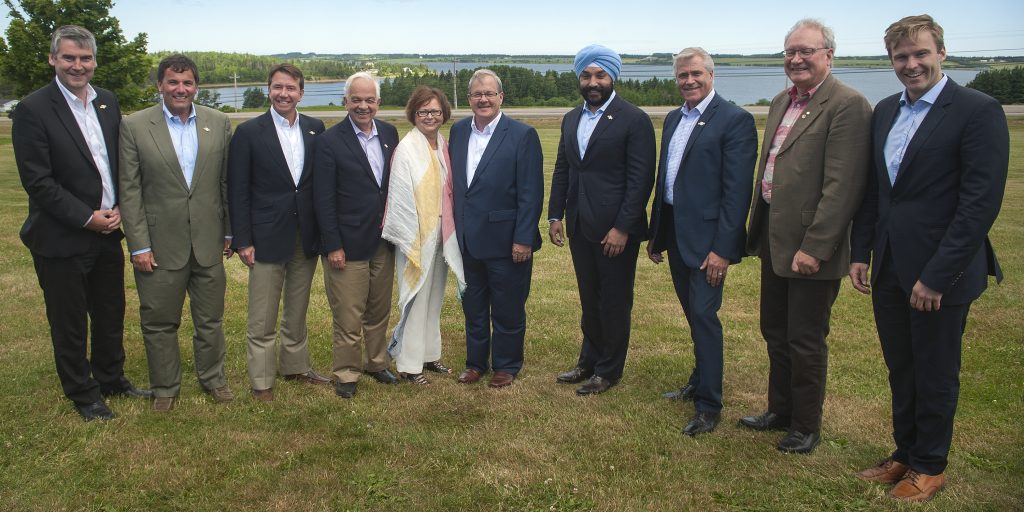Atlantic Premiers Discuss Priorities in Advance of the Meeting of Canada’s Premiers
Atlantic Premiers spoke today on advancing the shared priorities of the region. Prince Edward Island Premier Dennis King, chair of the Council of Atlantic Premiers, hosted a conference call today with New Brunswick Premier Blaine Higgs, Newfoundland and Labrador Premier Dwight Ball, and Nova Scotia Premier Stephen McNeil, in advance of the meeting of Canada’s Premiers on December 2, 2019 in Toronto.
See full documnet here: CAP Release November 2019



